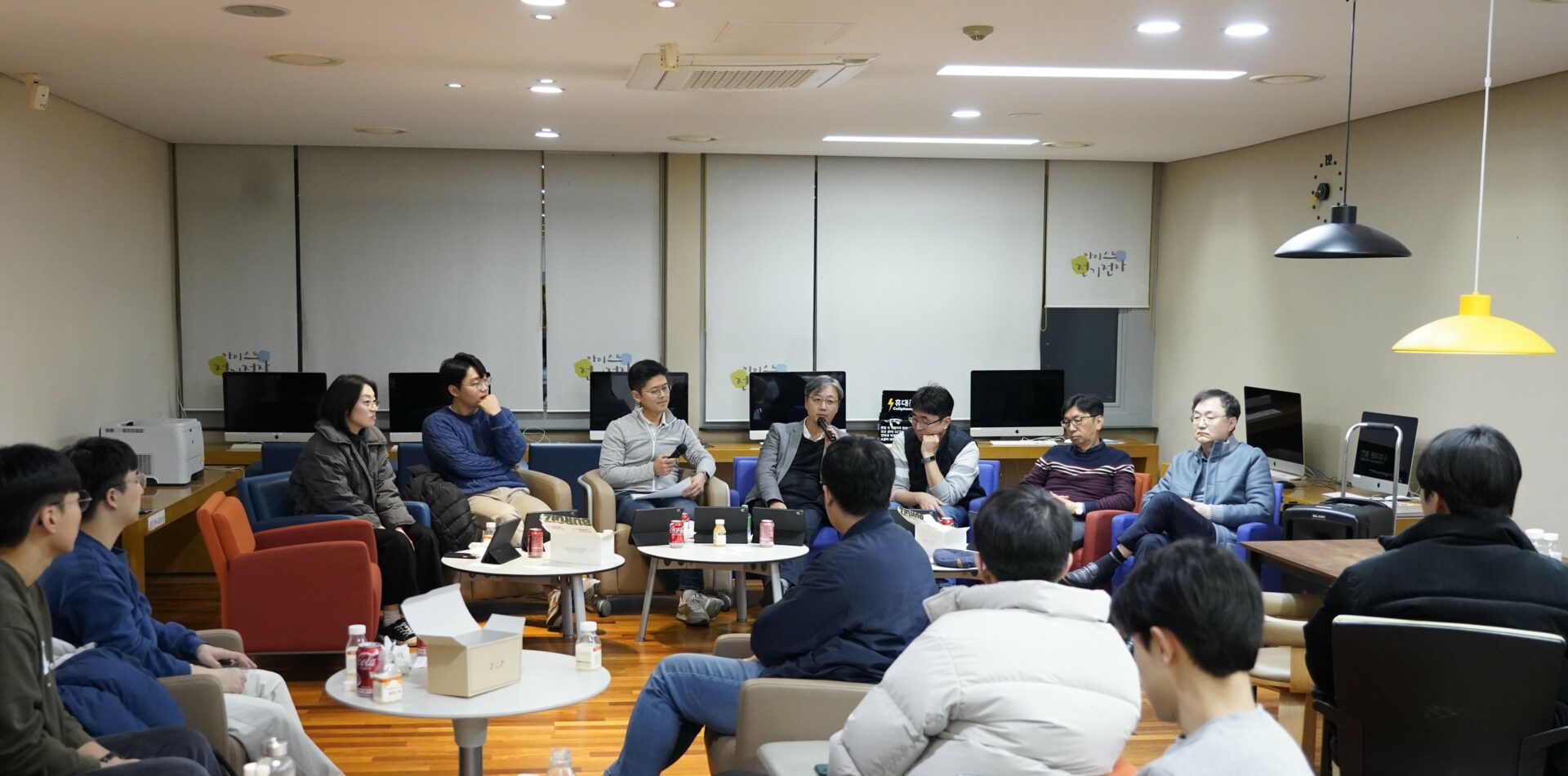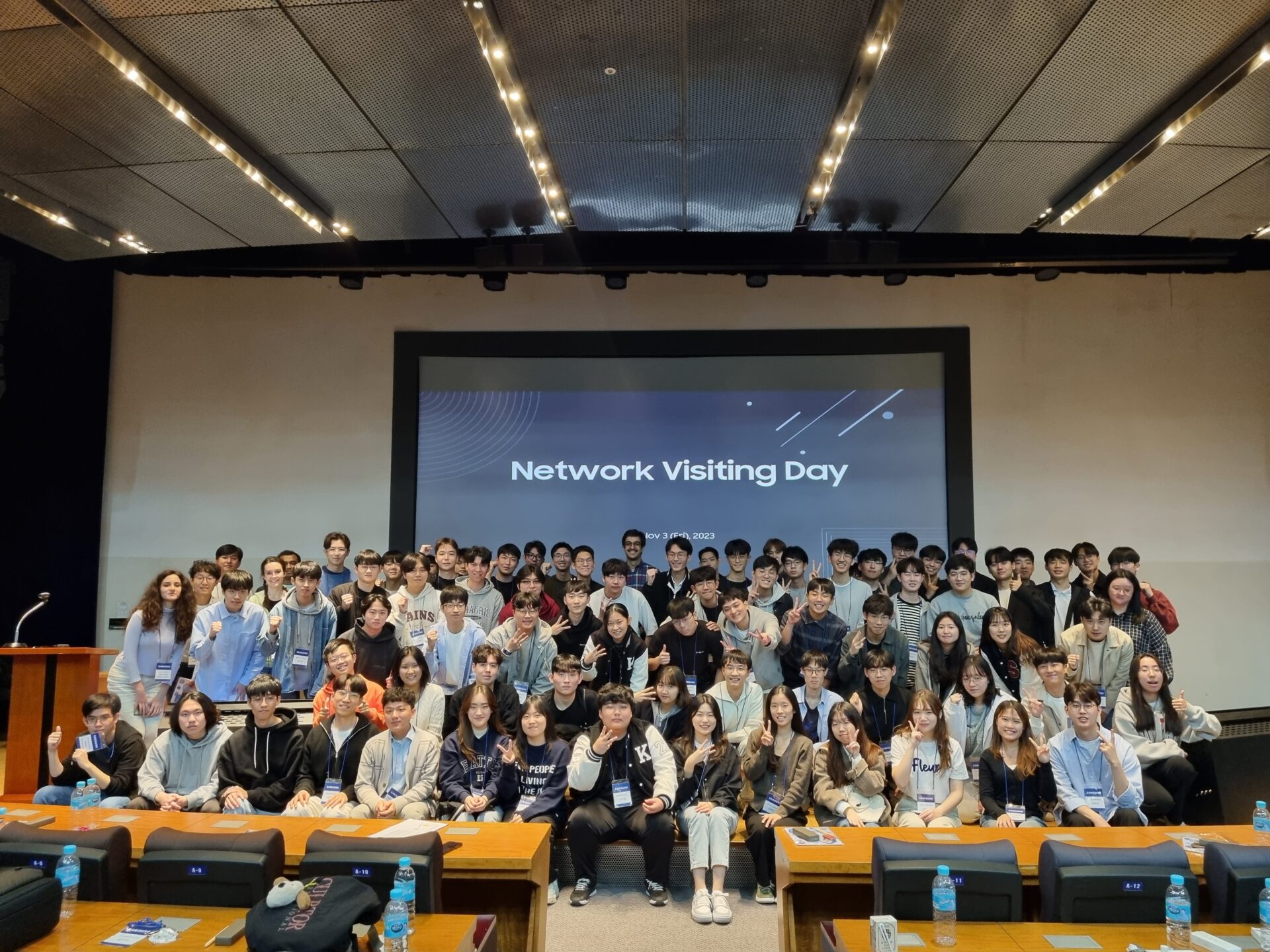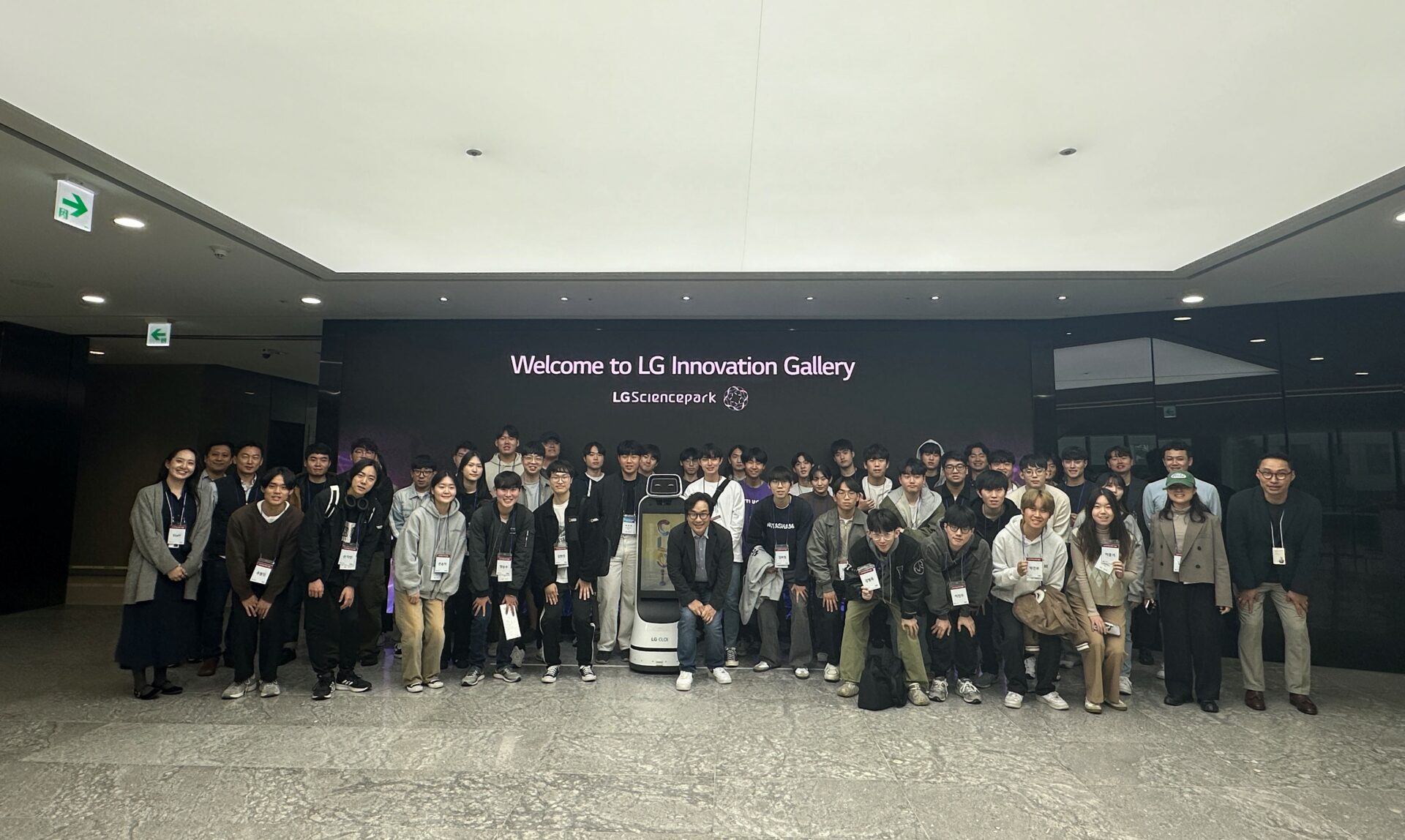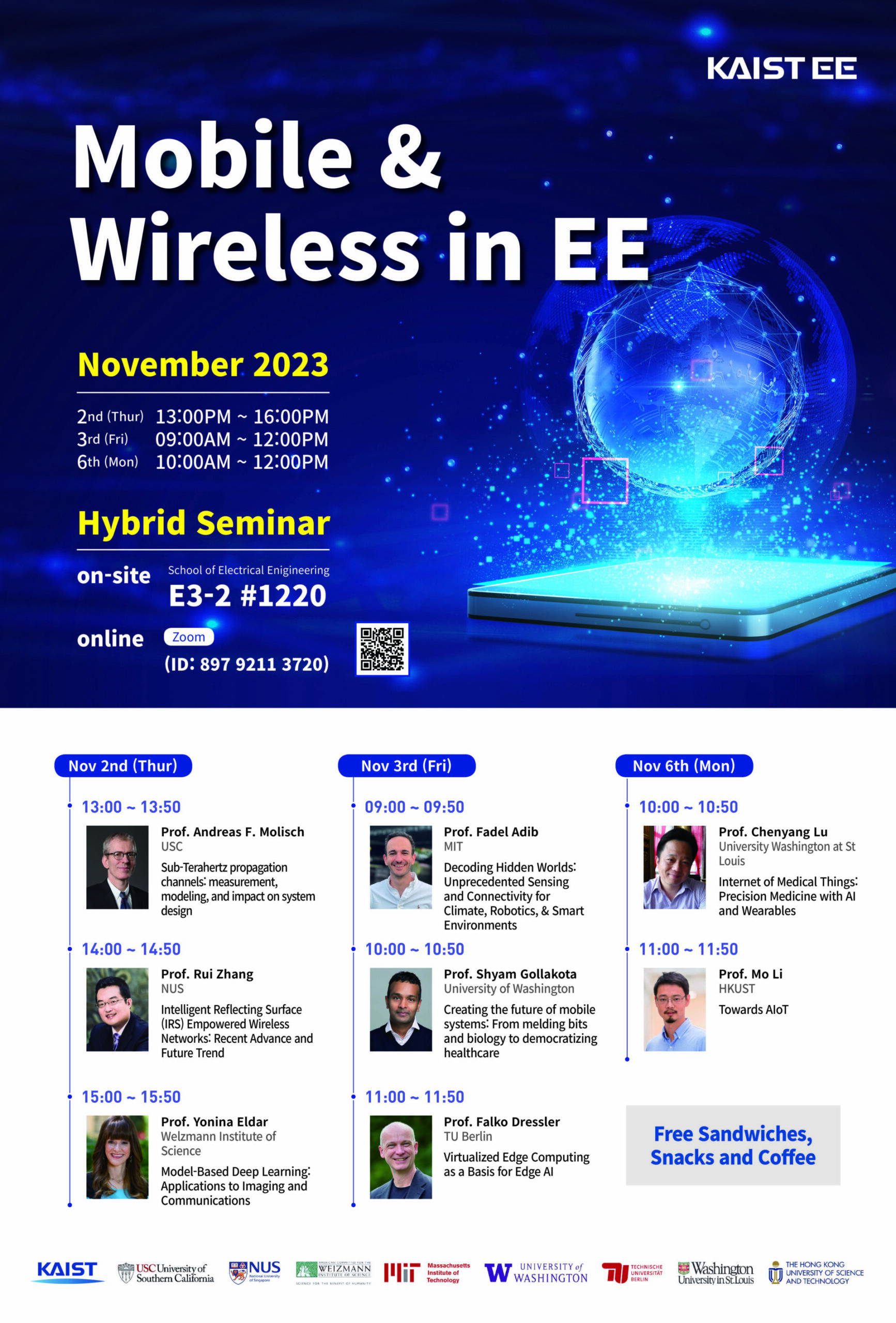Highlights


EE Professor Myoungsoo Jung’s research team has developed, for the first time, an AI semiconductor technology that can accelerate end-to-end inference for graph neural network-based machine learning.
Graphs are data structures composed of vertices and edges, each representing data points and their relationships. Graph-based neural networks, or Graph Neural Networks (GNNs), can learn complex relationships in real-world data, making them essential across applications such as recommender systems, social network services (SNS), and knowledge graphs. Despite their higher accuracy, GNN-based services have faced challenges in real-world deployments due to their high latency.

The research team found that 70–90% of GNN inference time is due to the graph preprocessing stage, where graph data structures are transformed, rather than the GNN model computation time itself. By analyzing preprocessing operations, the research team further identified the algorithms that conventional GPU architectures struggle to parallelize, and accelerated them using specialized hardware logic. Notably, their design separates a fixed-function hardware “shell” from a reconfigurable hardware “kernel,” enabling the kernel to be reconfigured on-the-fly to match the diverse input graph currently being processed and thus sustain high performance on dynamic scenarios.
To validate AutoGNN, the team built an RTL-based prototype on an FPGA and compared GNN inference performance against a server-grade Intel CPU and a high-end NVIDIA GPU. AutoGNN achieved 9.0× speedup over the CPU and 2.1× over the GPU, while reducing energy consumption by 3.3×. They also verified that, in realistic scenarios where graphs change in real time, the reconfigurable design can consistently maintain high performance.

This research, along with the paper titled “AutoGNN: End-to-End Hardware-Driven Graph Preprocessing for Enhanced GNN Performance”, was presented at ‘32nd IEEE International Symposium on High-Performance Computer Architecture (HPCA 2026)’.
The research was supported by the Samsung Future Technology Development Program (삼성미래기술육성사업), and further details are available on the lab website: `https://camelab.org`.


Dr. Jaeyong Jeong, an alumnus of the School of Electrical Engineering, KAIST (Advisor: Prof. Sanghyeon Kim), has been appointed as an Assistant Professor in the Department of Electrical Engineering at the Ulsan National Institute of Science and Technology (UNIST), effective March 1, 2026.
After receiving his Ph.D. degree in February 2024, Dr. Jeong worked as a postdoctoral researcher at the KAIST Institute of Information Technology and IBM Research Zurich, where he was dispatched under the Korea–Switzerland Innovation Program.
Dr. Jeong has been actively engaged in research on compound semiconductor devices and has published more than 50 papers in internationally renowned journals and conferences. In particular, he has presented a total of 15 first-author papers at IEDM (International Electron Device Meeting) and the VLSI Symposium, which are regarded as the most prestigious conferences in the semiconductor field and are often referred to as the “Olympics of Semiconductors.” Based on these achievements, he was awarded the IEEE EDS Ph.D. Fellowship during his doctoral studies.
Dr. Jeong is expected to continue focusing his research on high-frequency compound semiconductor devices and power semiconductor devices, and to make significant contributions to the advancement of academia and industry.


Dr. Hong Joo Lee, an alumnus of the School of Electrical Engineering at KAIST (Advisor: Prof. Yong Man Ro), has been appointed as an Assistant Professor in the Department of Applied Artificial Intelligence at Seoul National University of Science and Technology, effective March 1, 2026.
Dr. Lee earned his Ph.D. with a dissertation titled “Investigating Adversarial Robustness via Booster Signal.” During his doctoral studies, he participated in the Center for Applied Research in Artificial Intelligence (CARAI) for National Defense Research. His research has been widely recognized through numerous publications in top-tier conferences and journals, including CVPR, IEEE TIP, and IEEE TNNLS.
After receiving his doctorate in 2023, Dr. Lee served as a postdoctoral researcher at the Technical University of Munich (TUM) in Germany. His postdoctoral work focused on the reliability of AI models in the medical field, leading to further high-impact publications in ECCV, MICCAI, and AAAI.
In his new role as a professor, Dr. Lee plans to deepen his research on Reliable Intelligence Systems, focusing on the vulnerability, safety, and fairness of AI models.


From TVs and smartwatches to the recently highlighted VR/AR devices—micro-LED, the core technology of these screens, is a next-generation display where individual LEDs smaller than the thickness of a human hair emit light on their own. While Red, Green, and Blue (RGB) are essential for completing a display, highly quantum efficient red micro-LED technology is known to be the most difficult to implement. Professor Sanghyeon Kim of our department and his joint research team have overcome the limitations of existing technologies. They have developed a red micro-LED display technology that achieves ultra-high resolution while significantly reducing power consumption.
Through this, the research team successfully implemented a 1,700 PPI-level ultra-high-resolution micro-LED display. This technology can provide ‘real-life-like images’ rather than just high-resolution screens for VR/AR devices, offering approximately 3 to 4 times the resolution of current smartphone displays. *PPI (Pixel Per Inch): An index indicating how densely pixels, the smallest dots forming a screen, are arranged.
There were two main challenges in commercializing micro-LEDs. First was the efficiency degradation of red LEDs. Specifically, when implementing ‘red pixels,’ energy leakage occurs as the pixel size decreases, causing efficiency to drop sharply. Second was the limitation of the transfer process. The conventional method of picking and placing millions of microscopic LEDs individually makes ultra-high resolution difficult and leads to high defect rates.
The research team solved these problems simultaneously. First, by applying an AlInP/GaInP ‘double-quantum-well (DQW) structure’, they implemented high-efficiency red micro-LEDs that significantly reduce energy loss even as pixel sizes shrink. Simply put, the quantum well/barrier structure acts as an “energy barrier.” It confines electrons and holes within the quantum well layer, preventing carrier leakage. By adopting quantum wells with higher hole concentration, the research team effectively reduced energy loss as pixel sizes decreased, enabling brighter and more efficient red micro-LEDs

Furthermore, instead of transferring LEDs individually, they applied ‘monolithic three-dimensional (M3D) integration’ technology. This involves stacking the LED layers directly onto the driving circuits. This method has the advantage of reducing alignment errors and defect rates, allowing for the stable production of ultra-high-resolution displays. During this process, the research team also secured low-temperature process technology to prevent damage to the underlying circuits.

This research, led by Dr. Juhyuk Park (KAIST) as the first author and Professor Sanghyeon Kim (KAIST) and Professor Dae-Myeong Geum (Inha University) as corresponding authors, was published in the world-renowned academic journal ‘Nature Electronics’ on January 20.
※ Paper Title: A monolithic three-dimensional integrated red micro-LED display on silicon using AlInP/GaInP epilayers)
※ URL: https://www.nature.com/articles/s41928-025-01546-4
The research was conducted in collaboration with Professor Dae-Myeong Geum of Inha University. The team also partnered with QSI (CEO Chung-dae Lee), a compound semiconductor manufacturer, and RAONTECH (CEO Seung-tak Yi), a micro-display and semiconductor SoC design company. This work was supported by the National Research Foundation of Korea (NRF) Basic Research Program (2019) and the Display Strategy Research Laboratory project (currently ongoing). It also received support from the Samsung Science and Technology Foundation (2020–2023).


We are pleased to announce that Professor Seulki Lee has joined the School of Electrical Engineering as of February 4, 2026. We warmly welcome him to our school.
Professor Lee’s office is located in Kim Beang-Ho KIM Sam-Youl ITC B/D (N1). Professor Lee’s research focuses on Embedded AI (On-device AI), real-time, mobile, and sensing systems, AIoT (AI + IoT), intelligent edge systems, and deep learning compilers. He conducts research with the goal of advancing embedded artificial intelligence technologies. His work addresses the challenges of limited memory, computation, and power in embedded environments, with an emphasis on efficient deep learning optimization, on-device neural architecture search, and real-time AI system design.
For more detailed information about Professor Lee’s research, please visit his website below.
Website: https://sites.google.com/view/embeddedai
< Academic and Professional Profile>
Major Field
- Embedded AI (On-device AI)
- Real-time, Mobile and Sensing Systems
- AIoT (AI + IoT) and Intelligent Edge
- Deep Learning Compilers
Educational Background
- Bachelor Degree, 2009, University of Seoul
- Master Degree, 2018, UNC Chapel Hill
- Doctoral Degree, 2021, UNC Chapel Hill
Career
- Aug. 2021 – Aug. 2025: Assistant Professor, UNIST
- Sep. 2025 – Feb. 2026: Associate Professor, UNIST
Publications
- “Bayesian Code Diffusion for Efficient Automatic Deep Learning Program Optimization,”
USENIX Symposium on Operating Systems Design and Implementation (OSDI), 2025 - “AliO: Output Alignment Matters in Long-Term Time Series Forecasting,”
Annual Conference on Neural Information Processing Systems (NeurIPS), 2025 - “SMMF: Square-Matricized Momentum Factorization for Memory-Efficient Optimization,”
Annual AAAI Conference on Artificial Intelligence (AAAI), 2025 - “CAFO: Feature-Centric Explanation on Time Series Classification,”
SIGKDD Conference on Knowledge Discovery and Data Mining (KDD), 2024 - “On-NAS: On-Device Neural Architecture Search on Memory-Constrained Intelligent Embedded Systems,”
ACM Conference on Embedded Networked Sensor Systems (SenSys), 2023
Assigned Curricular Plan
- EE.40015 Operating Systems and System Programming for Electrical Engineering
- EE.40014 Embedded Systems
- EE.30031 Introduction to Machine Learning
- EE.30012 Introduction to Computer Architecture
- EE.50016 Embedded Software
- EE.50038 Neural Networks
Vision
We make resource-constrained real-time and embedded sensing systems capable of learning, adapting, and evolving, with the aim of enabling Embedded Artificial Intelligence (Embedded AI or On-Device AI).
Research Plan
- We pursue excellence in research on EE, CSE, and AI.
- We make the world a better place by making real impacts with our research.
- We collaborate with and learn from each other when solving challenging problems.


Ji-Hoon Kim and Hyeonggon Ryu have been appointed as assistant professors at leading universities in Korea. They are Ph.D. candidates from Prof. Joon Son Chung’s Multimodal AI Lab in the School of Electrical Engineering, KAIST, and will receive their Ph.D. degrees in February 2026.
Ji-Hoon Kim has been appointed as an Assistant Professor at the Graduate School of Advanced Imaging Science, Multimedia & Film at Chung-Ang University, effective March 1, 2026. During his doctoral studies, he conducted research on human-centric multimodal artificial intelligence and published research papers in venues such as IEEE Transactions on Audio, Speech and Language Processing (TASLP), IEEE/CVF Conference on Computer Vision and Pattern Recognition (CVPR), and the AAAI Conference on Artificial Intelligence (AAAI). He plans to continue his research on multimodal AI technologies for natural interaction between humans and artificial intelligence.
Hyeonggon Ryu has been appointed as an Assistant Professor in the Department of Language & AI at Hankuk University of Foreign Studies, effective March 1, 2026. His research focused on audio-visual multimodal artificial intelligence, and he has published research papers in IEEE Transactions on Pattern Analysis and Machine Intelligence (TPAMI), IEEE/CVF Conference on Computer Vision and Pattern Recognition (CVPR), and the CVF International Conference on Computer Vision (ICCV). He plans to pursue further research on audio-visual multimodal AI, contributing to both academic and industrial developments.
These appointments reflect the outcomes of Prof. Joon Son Chung’s lab, which fosters an environment that encourages independent research and active participation in international academic activities in the field of multimodal artificial intelligence.


Dr. Sunjae Yoon, a Ph.D. graduate of the Artificial Intelligence & Machine Learning Lab. (U-AIM) at the School of Electrical Engineering, KAIST (Advisor: Professor Chang Dong Yoo), has been appointed as a tenure-track Assistant Professor in the Department of Artificial Intelligence, College of Software, Chung-Ang University, effective March 1, 2026.
Dr. Yoon received his Ph.D. degree from the School of Electrical Engineering, KAIST in February 2025 and is currently serving as a Postdoctoral Researcher at the KAIST Institute for Information Technology Convergence.
His primary research focus is Generative Artificial Intelligence, particularly in diffusion model-based video editing. His doctoral dissertation, titled “Diffusion Model-based Video Editing,” was recognized with the Outstanding Ph.D. Dissertation Award. He has also published multiple research papers at leading international conferences in artificial intelligence, including NeurIPS, ICML, and ICCV.
The research group led by Professor Chang Dong Yoo has conducted extensive research on generative artificial intelligence across diverse modalities such as image, video, audio, and natural language. Building on these research achievements, the lab has successfully produced outstanding scholars who have joined various academic institutions, including Seoul National University, Korea University, Ulsan National Institute of Science and Technology (UNIST), Chung-Ang University, Gangneung-Wonju National University, and Pai Chai University.
The School of Electrical Engineering, KAIST congratulates Dr. Yoon on this significant achievement and looks forward to his continued success and contributions to the field of artificial intelligence


Shilong Zhang, Ph.D. Candidate, Professor Youngsoo Shin’s Research Lab (DT Lab), Winner of the First Place Photronics Best Student Presentation Award at SPIE Photomask Technology 2025
Shilong Zhang, a Ph.D. candidate from Professor Youngsoo Shin’s research group (KAIST DT Lab) in the School of Electrical Engineering, has won the First Place Photronics Best Student Presentation Award at SPIE Photomask Technology + EUV Lithography 2025, held from September 22 to 26 in Monterey, California, USA.
SPIE Photomask Technology + EUV Lithography is a premier international symposium where professionals and academics from the semiconductor industry gather to present and discuss the latest advancements in photolithography mask technology. The Photronics Best Student Presentation Award, sponsored by Photronics, Inc., is established to encourage students working in fields related to photomasks and EUV lithography. The first place winner receives a $1,500 prize.
Zhang’s award-winning paper, titled “Integrated Curvilinear OPC and SRAF Optimization through Reinforcement Learning,” proposes a reinforcement learning-based method to co-optimize curvilinear sub-resolution assist features (SRAFs) and curvilinear main patterns for advanced semiconductor lithography. The proposed method reduces maximum vertex placement error (VPE) by 7.6% and maximum process variation band (PVB) width by 23.0% compared to conventional curvilinear OPC with fixed SRAFs, demonstrating significant improvements in both pattern fidelity and process window robustness.
For details, refer to the link below:
https://spie.org/conferences-and-exhibitions/photomask-technology-and-extreme-ultraviolet-lithography/program/conferences/awards























